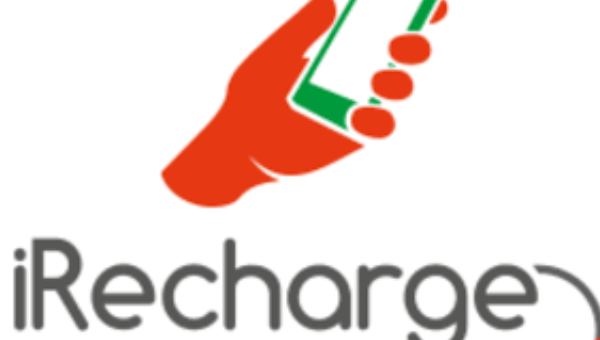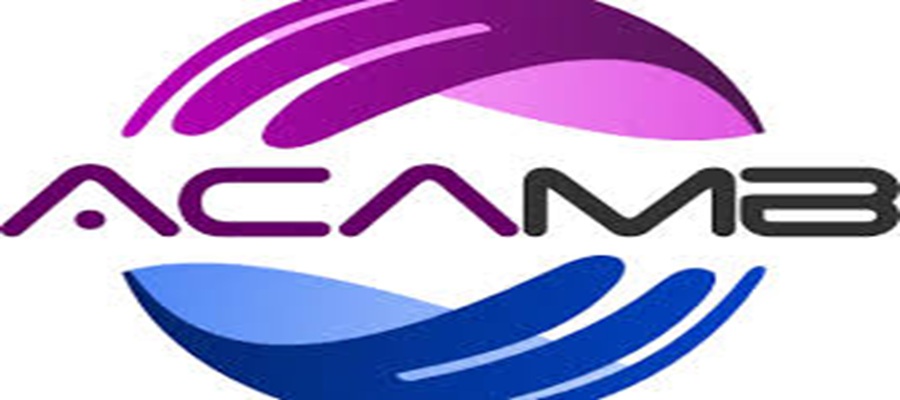E-Financial
iRecharge Unveils Payment Solutions for Utility Consumers

iRecharge Tech-Innovations Limited, an industry player with focus on Consumer services, Digital Alternatives, Payment processing and Enterprise Business Application, has unveiled a payment solution for utility consumers in the country.

Mr. Tomi Araromi, Chief Executive Officer, iRecharge Tech-Innovations, disclosed this in a statement at the weekend, saying it was “a patented and first-of-its-kind system that commands the ease and convenience of payment of recurring bills.”
Araromi noted that the new service “enables customers to make their frequent utility bill payments through the use of a unique NUBAN account number.
“Customers can retrieve the account numbers assigned to their utilities cable TV decoders, electricity meters etc by visiting their website.
“Using this system, customers will no longer need to expose their card details online to make payment for services. It also reduces the number of steps and time spent paying bills on mobile applications or at physical points of sale.
“A customer simply needs to transfer the purchase value or subscription amount to the pre-assigned account number to get instant value,” the chief executive said in the statement.
Araromi said innovation “is miles ahead of the conventional bill payment system which revolves around the idea of using mobile apps, websites or agents for bill payments.
“The new shift saves time for customers and the entire bill paying ecosystem as customers only need to retrieve the account number for the utility or service once.
“This mechanism promotes inclusion as payment for electricity tokens or cable subscription can be made via any of the banking channels such as ATM machines, bank mobile apps or USSD, Internet banking, bank deposit and all POS agents.”
E-Financial
ACAMB Educates Content Creator to Curb Misinformation on Bank Recapitalisation

In a bid to foster accurate public discourse as well as protect the stability of the financial sector, the Association of Corporate and Marketing Professionals in Banks (ACAMB) has stepped in to educate renowned content creator, Unofficial Osas, following his misrepresentation of facts concerning the Central Bank of Nigeria’s (CBN) recapitalisation drive, and subsequent invitation by the Nigerian Police Force.

ACAMB
The intervention by ACAMB led to the successful retraction of a misleading video regarding the CBN recapitalisation policy, demonstrating the Association’s commitment to its core mandate of public enlightenment.
In his official apology video, the content creator stated, “I was invited by the Nigerian police force national cyber crime centre in Abuja over the video I posted on the 15th of December, where i spoke about 12 banks that were shut down in relation to the CBN recapitalisation policy. I would like to offer an official retraction of that video and want to reiterate that no bank is shutting down.
“As a matter of fact, most of the banks have now met the ₦500 billion minimum capital base for banks with international and the N200bn for national banks recapitalisation requirements, so no bank is shutting down.
“I want to specifically appreciate ACAMB. They were very professional in handling this case and did well to educate and enlighten me on the recapitalisation process. I am now better informed and know better”
Commenting on the resolution, President of ACAMB, Jide Sipe, reinforced the Association’s dedication to protecting the integrity of the banking sector. “ACAMB stands for the restoration of professional banking ethics and public confidence through seamless information management and public enlightenment.
“We believe that an informed public is an empowered public. By engaging Unofficial Osas, we ensured that accurate information regarding the resilience and strength of our banks was disseminated to the millions of Nigerians who follow him.”
The Intervention shows ACAMB is dedicated to evolving strategies that enhance and sustain a good image for the nation’s banking sector as well as assist in fostering better banking habits among Nigerians.
E-Financial
FirstCap MD says Payment Security Remains Biggest Barrier to Bankable Gas and Power Projects

Ukandu E. Ukandu, Managing Director/CEO of FirstCap Limited, a leading investment banking firm and subsidiary of First HoldCo Plc., has reaffirmed that payment security remains the most decisive factor in determining whether gas and power projects in Nigeria secure financing.

He shared this perspective during a panel discussion on project bankability at the 2026 SPE Lagos Energy Week.
Ukandu noted that although several risks influence financing decisions, payment risk consistently emerges as the key barrier to financial close.
“Every major risk matter, but payment risk is the ultimate deal‑breaker. Without strong payment security and disciplined collections, no project can attract sustainable financing,” he said.
He explained that lenders typically evaluate three core risk pillars, payment reliability, foreign‑exchange exposure, and contract enforceability, with payment reliability presenting the greatest challenge across Nigeria’s energy value chain. Persistent collection inefficiencies, rising arrears, and liquidity pressures continue to weaken investor confidence.
To enhance payment security, Ukandu highlighted mechanisms widely used by financiers, including letters of credit, bank guarantees, escrow accounts with payment‑waterfall structures, reserve and sinking funds, sovereign or sub‑sovereign support, and take‑or‑pay offtake agreements.
Addressing foreign exchange risk, he noted that volatility remains difficult to manage, especially for projects with dollar‑denominated costs but naira‑denominated revenues. Lenders typically mitigate this through foreign exchange ‑linked tariff indexation, partial dollarisation for credible industrial offtakers, escrow protections, selective hedging, and foreign exchange reserve buffers.
However, he cautioned that indexation alone seldom eliminates exposure due to regulatory limits and timing delays.
On legal and regulatory certainty, Ukandu stressed the need for contracts that are enforceable and clearly structured, particularly around take‑or‑pay obligations, termination payments, step‑in rights, and dispute‑resolution frameworks. He added that factors such as tariff adjustments, licence changes, and price controls can significantly affect project viability if they are not fully addressed at the contracting stage.
While fiscal incentives such as tax holidays and accelerated depreciation can strengthen project economics, Ukandu emphasised that they cannot compensate for weak fundamentals.
“Incentives make a good project better, but they do not make a weak project bankable. Cash‑flow reliability and disciplined foreign exchange management must come first,” he said. He also noted that naira‑based incentives may lose value if project revenues are not indexed.
He concluded by urging industry players to prioritise revenue security from the earliest stages of project structuring: “Protect returns at the source. Build strong offtake arrangements with solid credit support and currency alignment to ensure cash is received in full and on time.”
E-Financial
Sterling HoldCo Starts Allotment of Oversubscribed Public Offer Shares

Sterling Financial Holdings Company Plc (Sterling HoldCo) has begun allotting 12,581,000,000 ordinary shares of 50 kobo each at ₦7.00 per share from its 2025 Public Offer.

Sterling HoldCo
The process follows Central Bank of Nigeria (CBN) and Securities & Exchange Commission (SEC) approvals.
The offer, opened September 15, 2025, drew 18,280 applications for 16.84 billion shares worth ₦117.88 billion—109.79 per cent oversubscribed.
Valid applications from 18,276 shareholders totalled 13.81 billion shares; all compliant applicants receive full allotments.
Refunds for rejects/excess, plus interest, process via RTGS/NIBSS by February 17, 2026, handled by Pace Registrars Limited.
Shares credit to CSCS accounts by the same date; new accounts held in pool pending documentation.
The raise bolsters capital for banking subsidiaries, injects ₦10 billion into SterlingFI Wealth Management to meet SEC rules, and funds credit expansion, innovation, and support for businesses/households.
Strong Financials, Diversified Growth
FY25 interim results show 99 per cent profit before tax growth; gross earnings up 46 per cent to ₦476.5 billion; assets at ₦3.92 trillion; deposits up 18 per cent to ₦2.98 trillion; shareholders’ funds up 39 per cent to ₦424 billion.
Cost-to-income ratio improved to 63 per cent from 72 per cent.
Subsidiaries—Sterling Bank Limited (conventional), The Alternative Bank Limited (non-interest, 150+ branches)—comply with CBN capital rules.
Initiatives include Mata Zalla (women tricycle training) and Plateau agriculture programme.
The offer attracted first-time retail investors, broadening ownership.
Sterling HoldCo welcomes new shareholders, poised for sustained growth and economic impact.

 Telecom3 days ago
Telecom3 days agoTerra Moves to Expand in African Drone Sector, Secures $22m Funding

 Telecom3 days ago
Telecom3 days agoTemu Assures Compliance Amid Nigeria Data Privacy Probe

 E-Financial3 days ago
E-Financial3 days agoDMO Offers ₦800bn FGN Bonds in February Auction Surge

 E-Financial3 days ago
E-Financial3 days agoDanjuma, Taj Bank Staff Jailed for 5 Years over N22m Fraud

 E-Financial3 days ago
E-Financial3 days agoKPMG Outlook Reveals Financial Services CEOs Double down on AI, Resilience and Growth in 2026

 E-Financial2 days ago
E-Financial2 days agoEcobank Nigeria Fully Repays $300m Eurobond Notes

 News3 days ago
News3 days agoChianugo, Nigerian $150m suit Against Google, GoDaddy.com Stalled due Judge’s Absence

 Telecom3 days ago
Telecom3 days agoMTN Group Announces Proposed Full Acquisition of IHS Towers














